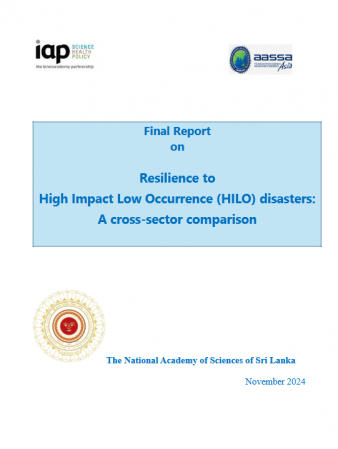In recognition of the growing global concern about High Impact Low Occurrence (HILO) disasters, the National Academy of Sciences of Sri Lanka (NASSL) spearheaded a collaborative project with the Association of Academies and Societies of Science in Asia (AASSA), funded by the InterAcademy Partnership (IAP). The initiative, titled “Resilience to High Impact Low Occurrence (HILO) disasters: A cross-sector comparison,” aimed to develop strategies to enhance resilience against such events. The project marked significant milestones, coinciding with the 20th anniversary of the Indian Ocean tsunami and the 5th anniversary of the Covid-19 pandemic.
Spanning December 2023 to November 2024, the project utilised a comprehensive methodology to gather and analyse data from diverse HILO events, engaging six partner academies. These included case studies on natural, biological, technological, and sociological disasters such as the Fukushima disaster in Japan, the Rohingya refugee crisis in Bangladesh, and the Indian Ocean tsunami in Sri Lanka. The research culminated in a workshop held in Colombo, Sri Lanka, from 5–7 September 2024, where representatives from participating academies, governmental and non-governmental agencies, and young academicians collaborated to distil best practices. The outcomes, disseminated through a final report, a journal paper and a short video, aim to empower academies worldwide to provide robust, evidence-based advice to governments on mitigating and responding to HILO disasters effectively.
Watch the video recording of the workshop here.



